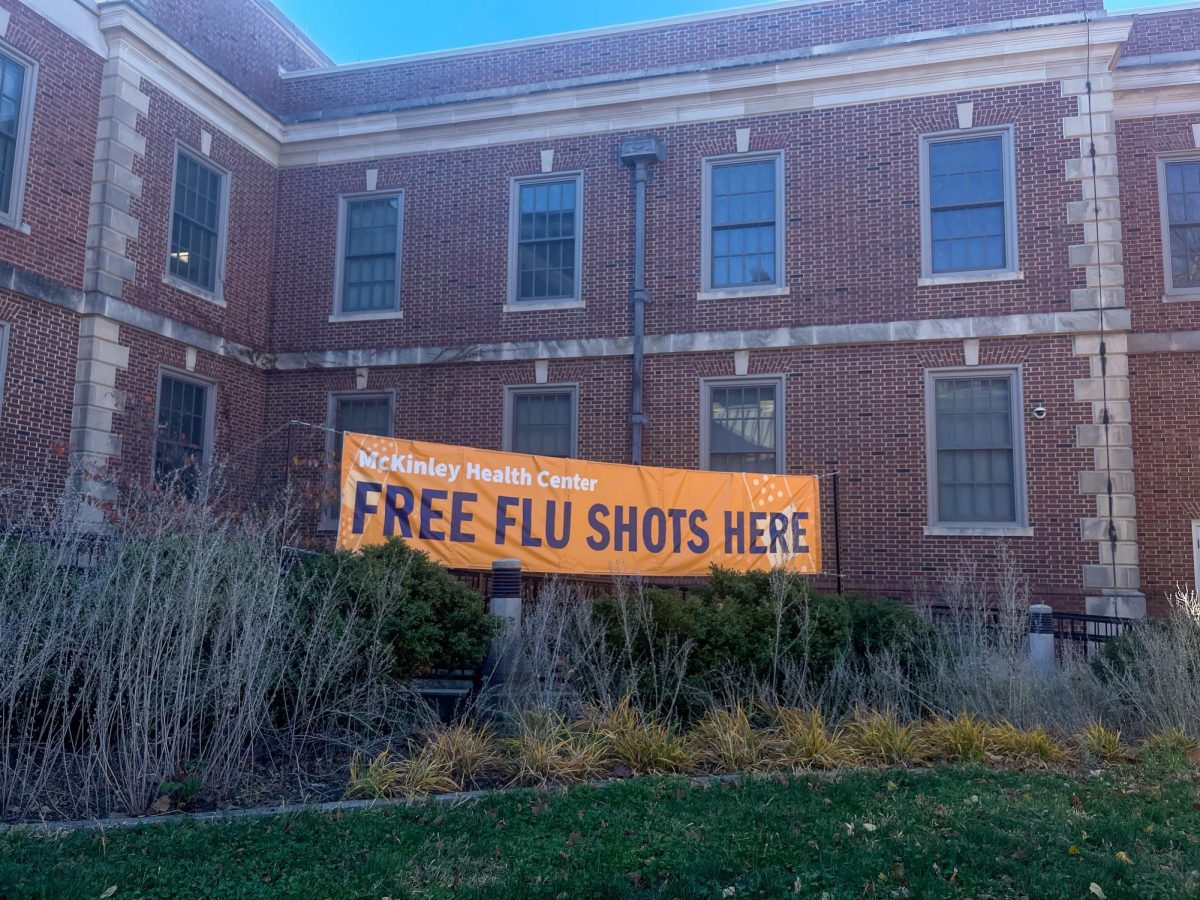Whether it’s referred to as the “frat flu,” the “college cough” or “dorm disease,” college students returning to campus living and the University’s social scene are more susceptible to common ailments and viruses. Given these familiar or newfound tight quarters in dorms or bar dance floors, it’s important to take necessary precautions so students stay happy and healthy this semester.
If the University stays true to the number of students admitted for the 2023-2024 school year, this year’s class of incoming freshmen could host upwards of 8,000 new Illini. Given that first-year students are required to live on campus, cramped quarters in University dorms mean they’re susceptible to a host of new germs.
Dr. Robert Woodward, medical director for the McKinley Health Center on campus, says that the on-campus medical team sees students at the beginning of the school year more often than not for common, contagious ailments.
“The most common illnesses are those that are contagious when you get a lot of people together in small areas,” Woodward said via email. “These are the common cold, strep throat, pink eye and maybe even COVID.”
Dr. Woodward added that the first few weeks of the first semester are when a high volume of students rush to seek on-campus medical care for common illnesses or allergies, given that some have yet to adjust to the environment of central Illinois or begin to catch various bugs due to their newfound close quarters.
Get The Daily Illini in your inbox!
“The third week through midterms seem to be quite busy,” Woodward said.
According to the National College Health Assessment published in 2023, 33.7% of surveyed students from across the country had been diagnosed with some sort of cold, virus or respiratory condition within the past year. Another 10.9% said they had been diagnosed with the flu or a flu-like illness.
While it may be tempting to share a drink with a friend at a party or forget to wash hands before a dining hall trip, Dr. Woodward added that it is important to thoroughly maintain personal hygiene at school.
“To avoid catching these illnesses, wash your hands before you eat and before touching your face,” Woodward said. “Also avoid being near people who are coughing or sneezing, and do not eat or drink after people.”
McKinley also has vending machines or “self-care stations” throughout campus that offer free, over-the-counter medications to students twice a semester to fight off a stubborn cough or runny nose.
COVID-19 has also been a concern throughout the summer across the globe. Dr. Maria Van Kerkhove of the World Health Organization announced Tuesday that worldwide cases have been surging with fears of more severe variants on the horizon.
Dr. Woodward, however, said that while McKinley has not seen this summer surge firsthand, the team does expect a rise in similar illnesses soon.
Dr. Woodward added that since the University’s campus population is mostly healthy young adults, cases of COVID-19 should be treated like common colds unless students have an underlying lung condition like asthma.






